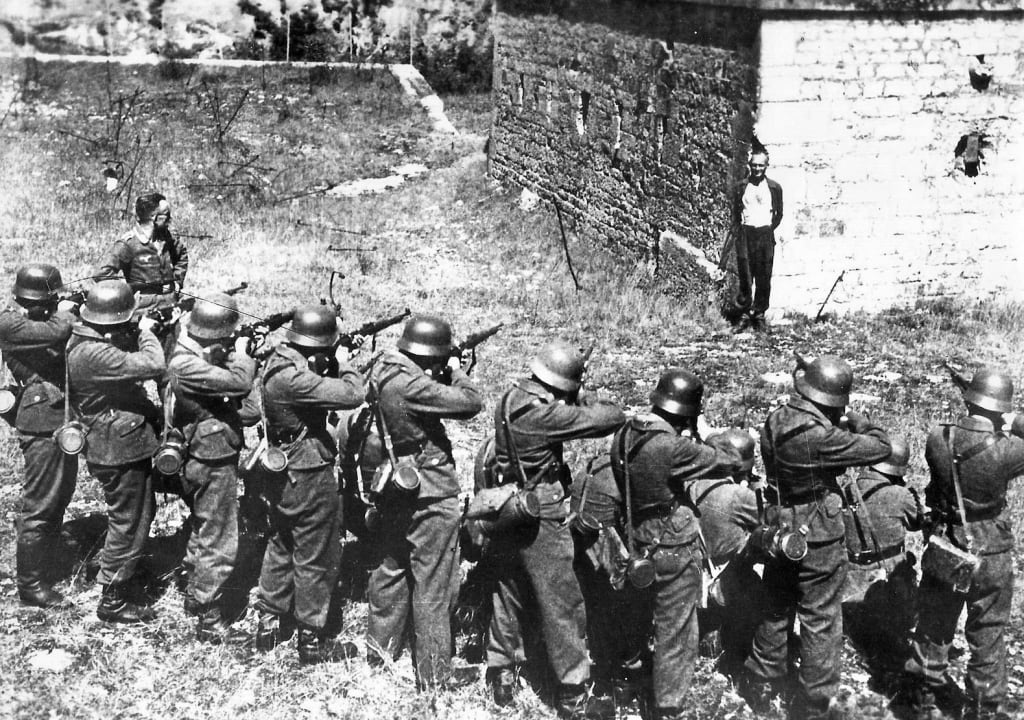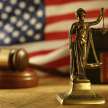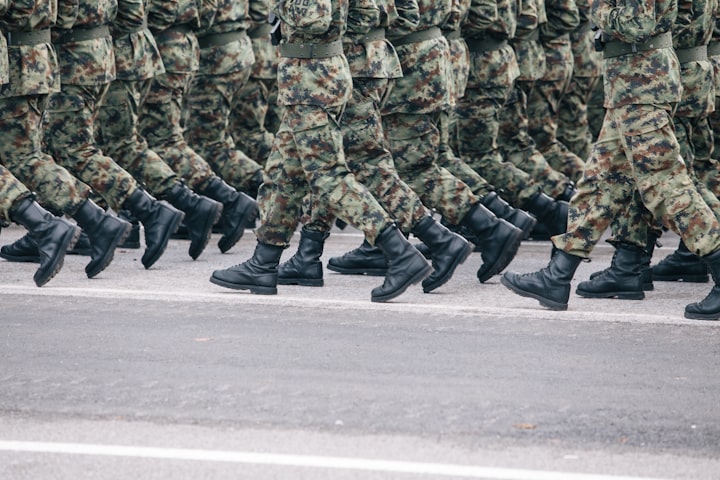The 10 Most Disturbing Books About World War II
Books about World War II always involve pretty gruesome events, but only some titles are guaranteed to make you realize the full extent of the carnage this war caused.

Two nuclear explosions. 80 million dead. More war crimes than any other event in human history. Entire continents turned upside-down. That's World War II in a nutshell.
For many people, World War II is a real-life example of watching the forces of good triumph over evil. For others, it's a war that that ripped apart families and continues to echo its devastation to this very day.
The war itself was unlike anything humanity has ever seen prior, and that's why so many books have been written about it. Some are uplifting, like biographies about Winston Churchill. More, though, are quite disturbing in nature.
War is always going to be ugly, but it takes a certain kind of descriptive talent to show how ugly it can be. Being able to tell the tales of war crimes, death camps, and worse is something can be deemed necessary; but let's face it, not exactly easy for writers to do.
Books about World War II are the world's best reminder as to why it's important to stay vigilant against fascism, racism, and greed. These books show the true horrors of World War II, and remind people what can happen when evil people gain too much power.
The War of the World isn't just one of the most disturbing books about World War II; it's a downright fearless publication that calls our war crimes on both sides of the conflict.
Niall Ferguson talks about World War II as the "age of hatred," and examines what led people to hate one another to the point of genocide. If the gripping look into an ugly side of human nature isn't enough for you, his detailed descriptions of war crimes will be.
This isn't a book that just sticks to what you read in history class. Taboo topics, such as the West's tendency to gift skulls of dead soldiers, are regularly broached in this book—and in pretty horrific detail too:
"...boiling the flesh off enemy [Japanese] skulls to make souvenirs was not an uncommon practice. Ears, bones and teeth were also collected."—Niall Ferguson
Most people who studied World War II know that there are several books about World War II's massive number of war crimes committed by Germany. Germany's war crimes can't be emphasized enough, but then again, neither can Japan's.
Hidden Horrors is a book written by a Japanese scholar who collected eyewitness accounts to war crimes committed by Japan that would have otherwise stayed buried in history.
From uncovering what happened to 56 American nurses who were shipwrecked to detailing the gruesome accounts of Japanese soldiers who would eat their captives, this book lives up to its name in every sense of the word.
Over the years, there have been many books about World War II to hit the New York Times bestseller list. Few, though, have brought events that occurred during those years to light in a more grisly manner than Iris Chang.
Iris Chang brought to light the true horror that occurred during the Rape of Nanking, a massacre that left over 300,000 people dead within a matter of days. Chang's own grandparents barely escaped the massacre, which might be why this book is so poignantly and passionately written.
No detail is left unaccounted for, and the tragic story of what happened will likely bring you to tears. Disturbing? Absolutely. But that's what makes The Nanking Massacre such a truly worrying book; it is truly one of the most shocking war criminal books you must read to understand the utter inhumanity of World War II.
The best storytellers you'll ever know are the people who actually saw what they're describing with their own eyes. They are the ones who can tell you what gunfire smells like, or what it's like to see someone die in the middle of war.
The Things Our Fathers Saw is a quartet of books that compiled eyewitness accounts from men and women who lived through World War II. From gritty accounts of gunfights with the enemy, to nightmare-inducing stories of war crimes, it's hard to put down this series.
Just, you know, don't be shocked if you start having nightmares. Every true story from the front lines you'll read will make you question humanity at its core. It's that kind of book.
Very few places have seen as much torture or as much evil as Unit 731. This Japanese concentration camp served as the heart of human experimentation in Asia—and almost all the subjects were either civilians or POWs.
Women who there were raped by doctors, infected with syphilis, then vivisected in order to study the effects of the disease on unborn children. Sometimes people would have limbs cut off and sewn back on in different places.
Hal Gold tasked himself with being the one to talk about these crimes, and then some, using actual testimony used to bring charges against those who worked in the facility in his book. The read is just as gruesome as you'd expect.
Miklos Nyiszli has seen some things no human should ever see. As a Jew who was imprisoned in the notorious Auschwitz prison camp, the only way he could survive was to use his medical skills as a prisoner-doctor.
Auschwitz gives you a hard hitting, heartbreaking account of what it was like to be forced to perform experiments on innocent people—and to work under the monstrous regime that wanted him dead.
Sobering to the point of depressing, this eyewitness account gives a warning to everyone about the dangers of anti-Semitism.
Elie Wiesel was just a teenager when he was ripped away from his family and forced into a concentration camp. Like many of the most disturbing books about World War II, Night is a stern warning about the consequences of letting the wrong people have power.
Often considered to be Wiesel's magnum opus, Night is a historic account that will give you chills, making you realize that humanity's dark side is nothing short of pure evil.
August 6, 1945, was a day that will always remain in the minds of historians as a landmark occasion. It was the first time in human history where nuclear weapons were deployed.
The bombs that were dropped on Hiroshima and Nagasaki changed the course of the war, and helped bring it to a close—but at what cost? Hiroshima follows the eyewitness accounts of six people who remember what the bomb that hit Hiroshima felt like.
Everything from the initial pika-don to the black rain is discussed here. It's currently one of the most popular mandatory reads in school systems, and once you leaf through it, you'll understand why.
World War II has a tendency of being painted in "black and white" terms, but the truth is that it's criminal to think of the war in such terms. Dirty Little Secrets of World War II is one of those books about World War II that makes you rethink wild World War II stories you never read about.
This war book will tell you things like the real relationship between Japan and Germany, as well as the origins of the term "rock and roll." What makes this book so disturbing is realizing how much information about the war was kept from civilians.
This is the kind of book that makes you wonder what you really know about current events—and how much of it is what your government wants you to know.
Anyone who knows about Stalingrad knows that it's considered to be one of the most gruesome sieges in modern history. The people of Stalingrad were surrounded by Nazis and were left without food for well over a year.
Rumors of cruel torture methods, cannibalism, and horrific executions were the norm in the areas surrounding the city. Little did others know that the rumors were very true—and worse, they were only the tip of the proverbial iceberg.
Stalingrad: The Fateful Siege tells you the horrifying story of what life was like in a city without food during the war to end all wars. Few books about World War II can come close to the horror this one holds, and that's saying something pretty fierce considering the number of heartbreaking books about WWII written.
About the Creator
Cato Conroy
Cato Conroy is a Manhattan-based writer who yearns for a better world. He loves to write about politics, news reports, and interesting innovations that will impact the way we live.







Comments
There are no comments for this story
Be the first to respond and start the conversation.